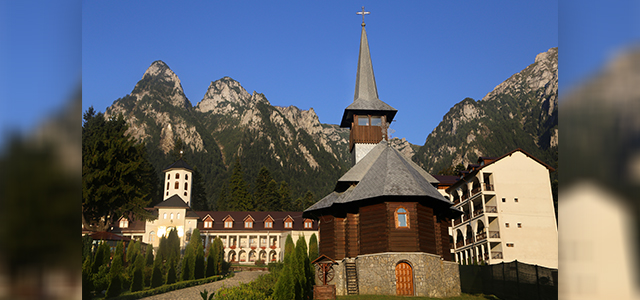In late May, 70 New Testament scholars from across Eastern Europe and a handful from the west met in the Caraiman Monastery in the Carpathian Mountains of Romania. They represented Orthodox, Catholic and Protestant denominations. The common ground was their concern with interpretation of the New Testament, with the conference focusing on what it tells us about what it means to be human. The Eight International East-West Symposium of New Testament Scholars represented overcoming barriers, sometimes centuries old.
Most from the east were from the communion of Orthodox Churches, including Russian, Serbian, Greek, Romanian, Armenian, and Ukrainian, with participants also from North Macedonia, Bulgaria, Estonia, Norway, Poland, Hungary, the Czech Republic, Latvia, Germany, Austria, USA, Canada and UK. The joint symposium was organised by the Society for New Testament Studies.
Uniting Church minister and former Professor of New Testament at Murdoch University and the Perth Theological Hall, Emeritus Professor Bill Loader is an honorary officer of the Society, responsible for its International Initiatives Program.
Rev. Dr Loader presented a paper on Gender and Sexuality, themes he says are “often avoided in the world of many participants.”
“This was an inspiring experience with a rich sense of fellowship and togetherness reflecting the trust which has been building up over recent years,” he said.
“From its earlier days of having matching speakers on a single theme from east and west the sense of commonality and trust has grown to the point where the focus is less on difference than on the unity experienced in the joint discipline of listening to what the text said then and hearing what it might be saying in the contemporary world.”
“The Orthodox, in particular, bring to the discussion the rich tradition of the fathers and mothers of the church reflecting a spirituality which is strongly based in liturgy. Both they and the Catholics grapple with the challenge of seeing the authoritative text of the Bible as the Greek version, thus the Septuagint, the Greek translation of the Old Testament, and the Latin Vulgate, respectively, rather than the original Hebrew and Greek of the New Testament.
“All…are engaged in the discipline of hearing these ancient texts in their original contexts and in openness engaging the paths of interpretation brought to them by subsequent generations.”
Image: Caraiman monastery Busteni, Romania
Jonathan Foye is Insights’ Editor














